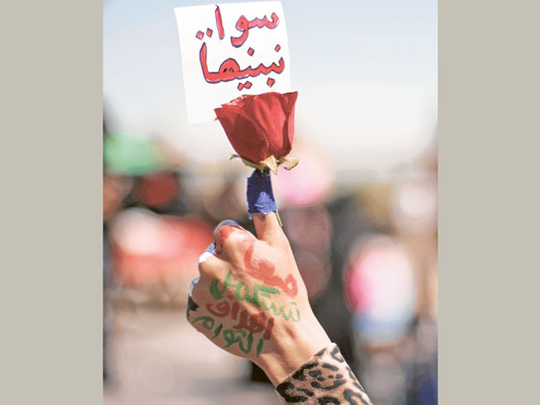
Sana'a: Violence in the Yemen's restive southern provinces has increased amid calls from secessionists for boycotting the presidential election scheduled for February 21.
Attacks on election centres have increased and clashes between anti-election protesters and police claimed more lives recently when government forces cracked down on protesters to stop them from threatening the elections in the south.
On Thursday, two southern Yemeni activists were shot dead by security forces during a demonstration in the southern province of Dhalae. Also in the port city of Mukalla, which is also seen as the secessionist movement's stronghold, a protester was killed and another was critically injured when government forces tried to disperse protesters gathered in front of a local police station, demanding the release of follow protesters.
Activists have denied their followers are behind attacks on election centres, claiming that they are committed to non-violence while resisting the election.
Legitimacy
"We have not exhausted peaceful means to express our rejection of the election," Aker Qasim, a senior activist in the movement, told Gulf News. Qasim hinted they could eventually take to arms to reach their goal of regaining the former southern state that united with the north in 1990.
"We have not used up all peaceful means to gain our state, but if these means are ineffective, we will use other means."
Qasim said the people in the south reject the election as it gives legitimacy to the people of the north to rule the south.
"If the people in the south vote in the election, it will be viewed as approval to the status quo ." Activists in the movement recently stepped up rallies, and distributed posters and leaflets calling for civil disobedience against the poll.
The nomination of the country's sole presidential candidate Abd Rabbo Mansour Hadi, who comes from the south, could not convince the southerners to stop their objection to the election .
"Abd Rabbo Mansour does not represent the people of the south. Hadi was among those who supported Saleh's regime when he was suppressing our movement," Qasim added.
In his recent address, Hadi pledged to address the grievances of the people in the south. The activist insisted that if Hadi wanted to talk to them, he should declare the unification deal null and void.
Momentum
Fatehi Bin Lazreg, editor of the weekly Adena Al Ghad newspaper, told Gulf News he is sure the movement would make a dent on the turnout.
"In 2008, the former ruling party and the opposition were forced to delay the election because of the movement's protests in the south. There were no protests at that time in the capital."
Bin Larzreg claims the movement is gathering momentum due to the resentment against policies of the government.
"I expect that there will be a south-wide boycott of the election and also expect that many members of the movement may stray from the fold and use violence to prevent the election."
Rally for equality
The southern movement came to the fore in 2007 when hundreds of former southern army pensioners organised rallies demanding equality with their peers in the north. The protests spread out across the southern provinces and upped the ante by demanding independence for the south.
Most of the country's sources of revenue come from the south where people say that after the 1994 civil war, northerners seized their resources and discriminated against them .












